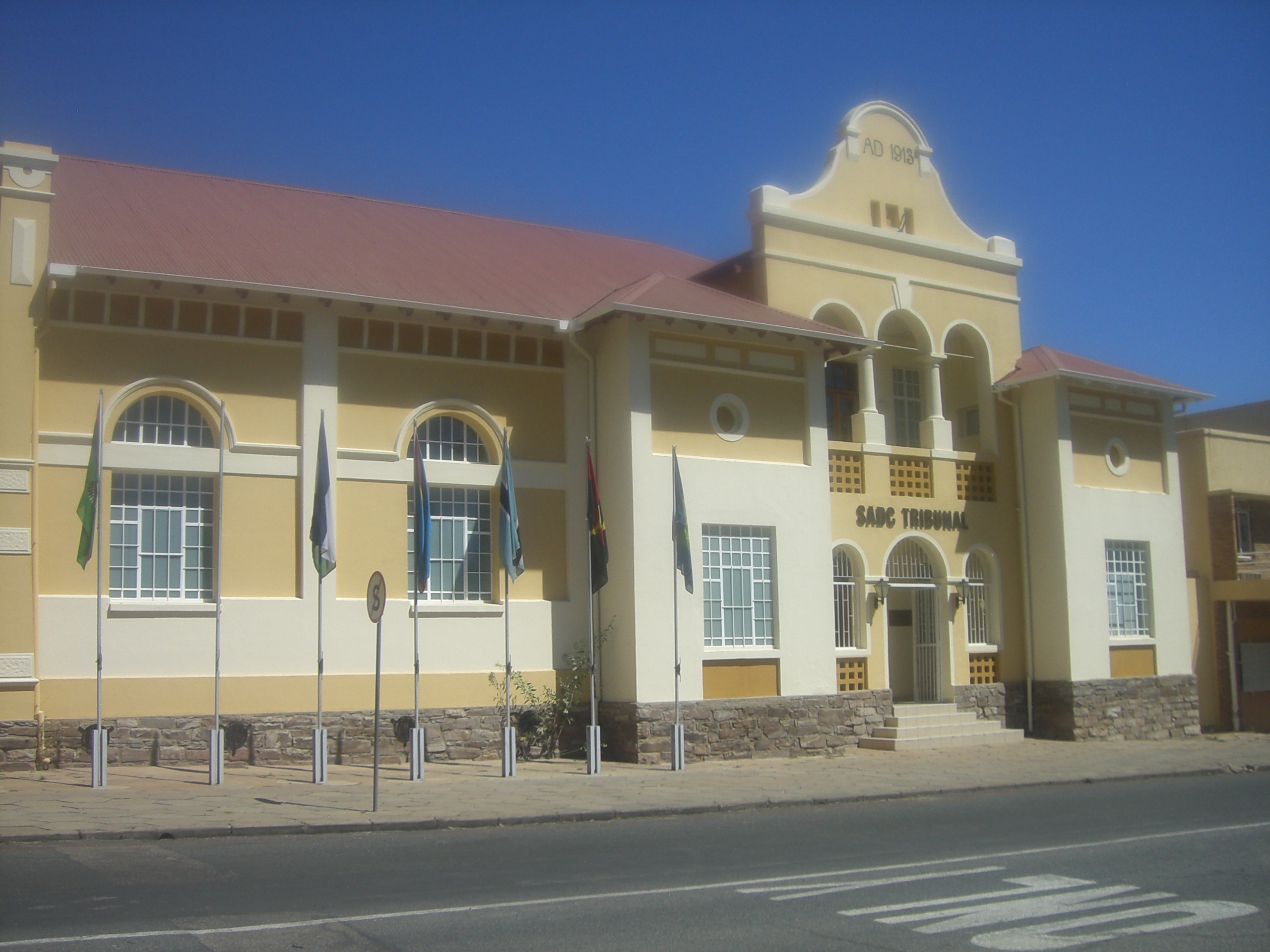SADC Tribunal on:
[Wikipedia]
[Google]
[Amazon]
 The SADC Tribunal was a court and the highest policy institution of the
The SADC Tribunal was a court and the highest policy institution of the
 The SADC Tribunal was a court and the highest policy institution of the
The SADC Tribunal was a court and the highest policy institution of the Southern African Development Community
The Southern African Development Community (SADC) is an inter-governmental organization headquartered in Gaborone, Botswana.
Its goal is to further regional socio-economic cooperation and integration as well as political and security coopera ...
(SADC). It was housed in the Turnhalle building in Windhoek
Windhoek (, , ) is the capital and largest city of Namibia. It is located in central Namibia in the Khomas Highland plateau area, at around above sea level, almost exactly at the country's geographical centre. The population of Windhoek in 202 ...
, the capital of Namibia
Namibia (, ), officially the Republic of Namibia, is a country in Southern Africa. Its western border is the Atlantic Ocean. It shares land borders with Zambia and Angola to the north, Botswana to the east and South Africa to the south and ea ...
. Although established on paper since 1992, members of the Tribunal were only appointed during the SADC Summit in 2005. On 18 November 2005 the Tribunal
A tribunal, generally, is any person or institution with authority to judge, adjudicate on, or determine claims or disputes—whether or not it is called a tribunal in its title.
For example, an advocate who appears before a court with a single ...
was inaugurated and the members were sworn in by Peter Shivute, chief justice of Namibia of the Namibian Supreme Court.
Before the first case was heard by the Tribunal, the Turnhalle burned down on 18 January 2007. The court room was completely destroyed. Reconstruction work started in November 2007.
Key decisions
In one of its first cases, '' Mike Campbell (Pvt) Ltd and Others v Republic of Zimbabwe'' the Tribunal decided in 2007 and 2008 that the government ofZimbabwe
Zimbabwe (), officially the Republic of Zimbabwe, is a landlocked country located in Southeast Africa, between the Zambezi and Limpopo Rivers, bordered by South Africa to the south, Botswana to the south-west, Zambia to the north, and ...
may not evict farmer Mike Campbell from his land, and that farm evictions per Amendment 17 of Zimbabwe's constitution amount to ''de facto
''De facto'' ( ; , "in fact") describes practices that exist in reality, whether or not they are officially recognized by laws or other formal norms. It is commonly used to refer to what happens in practice, in contrast with ''de jure'' ("by la ...
'' discrimination against Whites. Following this decision, Zimbabwe pulled out of the SADC Tribunal, challenging its legitimacy. The 2010 SADC summit then ordered a review of the "functions and ..terms of reference of the SADC Tribunal", a step that a group of legal and human rights organizations describes as "virtually suspending" this inter-regional court. During this time of reorganisation the Tribunal had only four of ten judges appointed and did not accept nor hear any cases.
Dissolution
The 2012 SADC summit resolved to limit the jurisdiction of the Tribunal to "disputes between member states" and so barred cases from individuals and companies to bring cases. Until 2012, only individuals had approached the Tribunal. SADC member states normally do not take each other to court so the necessity of the institution is now doubtful. The SADC resolution was described as effectively "neuter ng the Tribunal, and has been condemned by various groups. Later that year SADC disbanded the Tribunal altogether.References
{{Portal, Law, Politics, Africa, History Southern African Development Community Tribunals Windhoek Courts in Namibia 1992 establishments in Africa 2012 disestablishments in Africa